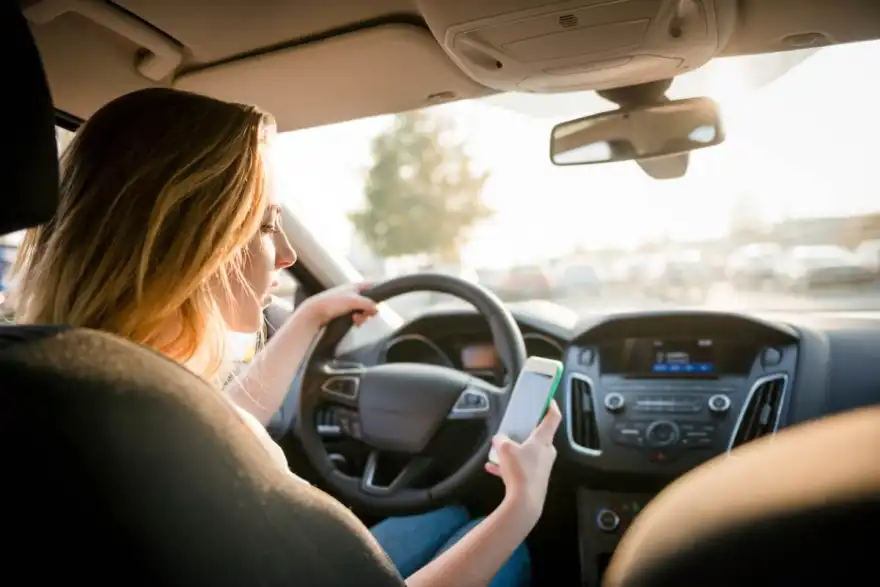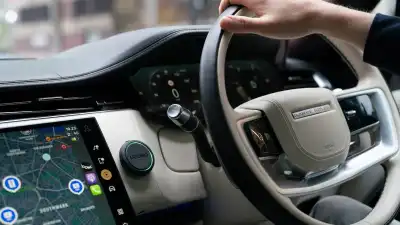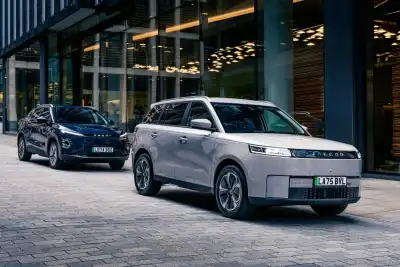
A new study has found that 90% of UK drivers use their phones at some point during car journeys, despite the risk of fines, penalty points, and an increased chance of being caught by roadside cameras.
The analysis, based on data from half a million drivers over the past year, suggests that just 10% of journeys are completed without any phone use. With over 42 million driving licence holders in the UK, this could mean around 38 million people are regularly distracted by their phones behind the wheel.
The research was carried out by telematics company IMS, which monitors driving behaviour for insurers like Aviva, Allianz, Admiral, and Hastings through smartphone apps used in usage-based insurance policies. The study recorded different levels of distraction, from Bluetooth phone calls (which are legal but still divert attention), to illegal activities like holding the phone or making video calls.
Widespread Distraction and Risk
According to the data, phone distraction is alarmingly common:
- 38% of drivers were distracted for up to a quarter of their journey.
- 28% used their phones for 25–50% of their drive.
- 16% were distracted for half to three-quarters of their journey.
- 8% used their phones for more than 75% of the time.
Each distraction event while the vehicle was moving lasted an average of 200 seconds. Worryingly, 42% of all trips included at least one such event.
This is especially concerning given that cognitive impairment from distractions can last up to 13 seconds after a task ends—enough time to travel the length of three football pitches at motorway speeds.
Experts Warn of Serious Safety Consequences
Professor Gemma Briggs, an expert in cognitive psychology at the Open University, explained that using a phone, whether handheld or hands-free, affects a driver’s mental focus and ability to process what’s happening on the road.
She said phone use increases the risk of crashing, causes slower reaction times, and can result in “inattentional blindness,” where drivers fail to notice hazards even when looking directly at them.
IMS CEO Paul Stacy added that phone-related distractions are now a major contributor to road collisions and insurance claims.
"It’s clear most drivers are engaging with their phones in some way, and it’s having a real impact on road safety,” he said.
Calls for Action
AA President Edmund King said that tougher enforcement is urgently needed and that phone use behind the wheel should be viewed as seriously as drink-driving.
"We need more police presence and more public campaigns to help change behaviour," he said.
Road safety campaigner Rebecca Morris said the findings reflect a growing culture where driving is seen as a right rather than a responsibility. She criticised weak enforcement and lack of leadership from government.
“We wouldn’t accept this level of harm in any other part of life,” she said.
Nicholas Lyes from IAM RoadSmart added that society's reliance on mobile phones is now deeply ingrained, making it harder for drivers to disconnect even while driving.
According to IAM research, nearly one in five drivers admitted to making video calls behind the wheel, and one in seven said they had uploaded content to social media while driving.
Tougher Laws, But Still Widespread Offending
Since 2017, the penalty for using a handheld device while driving has been a £200 fine and six licence points. In 2022, the rules were tightened again, making it illegal to touch a phone at all while the engine is running.
Despite this, offences are rising. In 2023, over 15,000 drivers were prosecuted for using handheld phones. GoCompare reports a 21% rise in phone-use convictions in the past three years.
The RAC says its latest data shows an increase in illegal phone use among younger drivers, particularly those under 25. Rod Dennis from the RAC said enforcement is key. "We need more roadside cameras and more effort to change behaviour long-term."
Infotainment Systems: A New Kind of Distraction
Beyond mobile phones, car infotainment systems are also being blamed for drawing drivers’ attention away from the road. A recent study by Auto Express ranked systems in 10 mainstream brands based on how distracting they are to use while driving.
Tasks like adjusting the air conditioning or music can take up to 22 seconds using some touchscreen systems—time when a driver may not be fully focused on the road.
Skoda’s system was found to be the least distracting, while Genesis topped the list for complexity. From 2026, Euro NCAP will reduce safety ratings for cars that rely solely on touchscreens for critical functions like indicators or wipers.
Paul Stacy from IMS said: “Over half of drivers we surveyed said infotainment screens are their biggest in-car distraction—far more than smartphones. We need to raise awareness of just how risky these systems can be."



